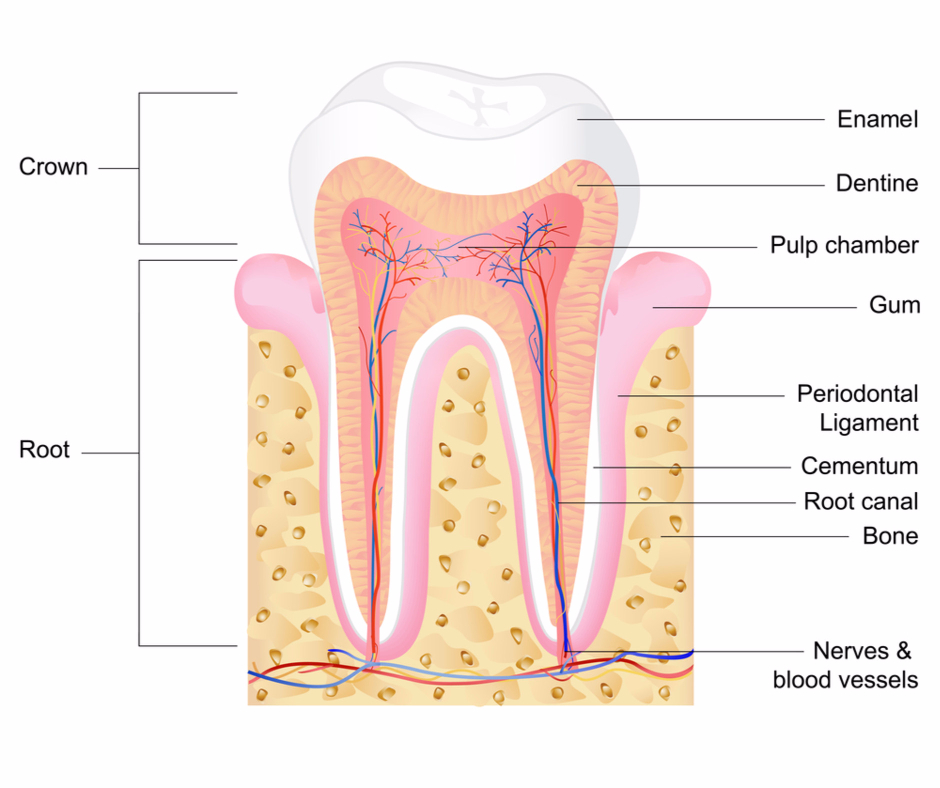10 Toothache Remedies For Quick Relief

Toothaches can be a debilitating experience, affecting not just our oral health but also our overall well-being. The sharp, piercing pain can disrupt our daily routines, making it difficult to concentrate on work, enjoy our favorite foods, or even get a good night’s sleep. Fortunately, there are several toothache remedies that can provide quick relief, allowing us to manage the pain until we can visit a dentist for proper treatment.
One of the primary reasons toothaches occur is due to the exposure of the dentin, a layer of tissue beneath the enamel of the tooth. This exposure can be caused by various factors, including cavities, gum recession, or cracked teeth. When the dentin is exposed, the nerve endings in the tooth can become irritated, leading to pain and discomfort. In some cases, toothaches can also be a symptom of a more serious underlying condition, such as an abscess or infection.
Understanding the Cause of Your Toothache
Before we delve into the remedies, it’s essential to understand the cause of your toothache. If your toothache is caused by a cavity, gum disease, or another underlying condition, it’s crucial to address the root cause of the problem. However, if your toothache is caused by a minor issue, such as a temporary sensitivity or a loose filling, there are several remedies that can provide quick relief.
10 Toothache Remedies for Quick Relief
- Saltwater Rinse: Rinsing your mouth with warm saltwater can help reduce swelling and ease pain. Mix 1 teaspoon of salt with 8 ounces of warm water and swish it around your mouth for 30 seconds before spitting it out.
- Cold Compress: Applying a cold compress to the outside of your cheek near the aching tooth can help numb the area and reduce pain. Wrap an ice pack or a bag of frozen peas in a cloth and apply it to your cheek for 15-20 minutes at a time.
- Clove Oil: Clove oil has natural analgesic and anti-inflammatory properties that can help alleviate toothache pain. Apply a few drops of clove oil to a cotton ball and place it on the affected tooth.
- Hydrogen Peroxide: Rinsing your mouth with hydrogen peroxide can help kill bacteria and reduce pain. Mix equal parts hydrogen peroxide and water and swish it around your mouth for 30 seconds before spitting it out.
- Over-the-Counter Pain Relievers: Over-the-counter pain relievers such as ibuprofen or acetaminophen can help reduce pain and inflammation. However, be sure to follow the recommended dosage and consult with your dentist before taking any medication.
- Desensitizing Toothpaste: If your toothache is caused by sensitive teeth, using a desensitizing toothpaste can help alleviate pain. These toothpastes contain ingredients such as potassium nitrate that can help block the dentin tubules and reduce sensitivity.
- Gargling with Apple Cider Vinegar: Apple cider vinegar has natural antibacterial properties that can help reduce inflammation and alleviate pain. Mix 1⁄2 cup of apple cider vinegar with 8 ounces of water and gargle for 30 seconds before spitting it out.
- Tea Bags: Soaking a tea bag in warm water and applying it to the affected tooth can help reduce pain and inflammation. The tannins in the tea can help reduce swelling and alleviate pain.
- Orajel: Orajel is a topical anesthetic that can help numb the affected area and reduce pain. Apply a small amount of Orajel to the affected tooth using a cotton swab.
- Garlic: Garlic has natural antibacterial and anti-inflammatory properties that can help alleviate toothache pain. Crush a clove of garlic and mix it with a small amount of water to create a paste. Apply the paste to the affected tooth using a cotton swab.
When to See a Dentist
While these remedies can provide quick relief, it’s essential to visit a dentist as soon as possible to address the underlying cause of your toothache. If your toothache is caused by a cavity, gum disease, or another underlying condition, delaying treatment can lead to more severe consequences, including infection, abscess, or even tooth loss.
Prevention is Key
Preventing toothaches is always better than treating them. Regular brushing and flossing, combined with bi-annual dental check-ups, can help prevent toothaches and maintain good oral health. Additionally, avoiding sugary and acidic foods, not using your teeth as tools, and wearing a mouthguard during sports can also help reduce the risk of toothaches.
Conclusion
Toothaches can be a painful and debilitating experience, but there are several remedies that can provide quick relief. By understanding the cause of your toothache and using one or more of these remedies, you can manage the pain until you can visit a dentist for proper treatment. Remember, prevention is key, and regular dental check-ups, combined with good oral hygiene practices, can help prevent toothaches and maintain good oral health.
What are the most common causes of toothaches?
+The most common causes of toothaches include cavities, gum disease, tooth sensitivity, and cracked or broken teeth.
How can I prevent toothaches?
+Preventing toothaches involves regular brushing and flossing, bi-annual dental check-ups, avoiding sugary and acidic foods, not using your teeth as tools, and wearing a mouthguard during sports.
What are the symptoms of a toothache?
+The symptoms of a toothache include sharp, piercing pain, sensitivity to hot or cold temperatures, swelling or tenderness in the gums, and difficulty chewing or swallowing.
How long does a toothache typically last?
+The duration of a toothache can vary depending on the underlying cause. If the toothache is caused by a minor issue, such as a temporary sensitivity, it may only last for a few hours. However, if the toothache is caused by a more serious condition, such as an abscess or infection, it may last for several days or even weeks.
Can I treat a toothache at home?
+While there are several home remedies that can provide quick relief, it’s essential to visit a dentist as soon as possible to address the underlying cause of your toothache. Delaying treatment can lead to more severe consequences, including infection, abscess, or even tooth loss.

